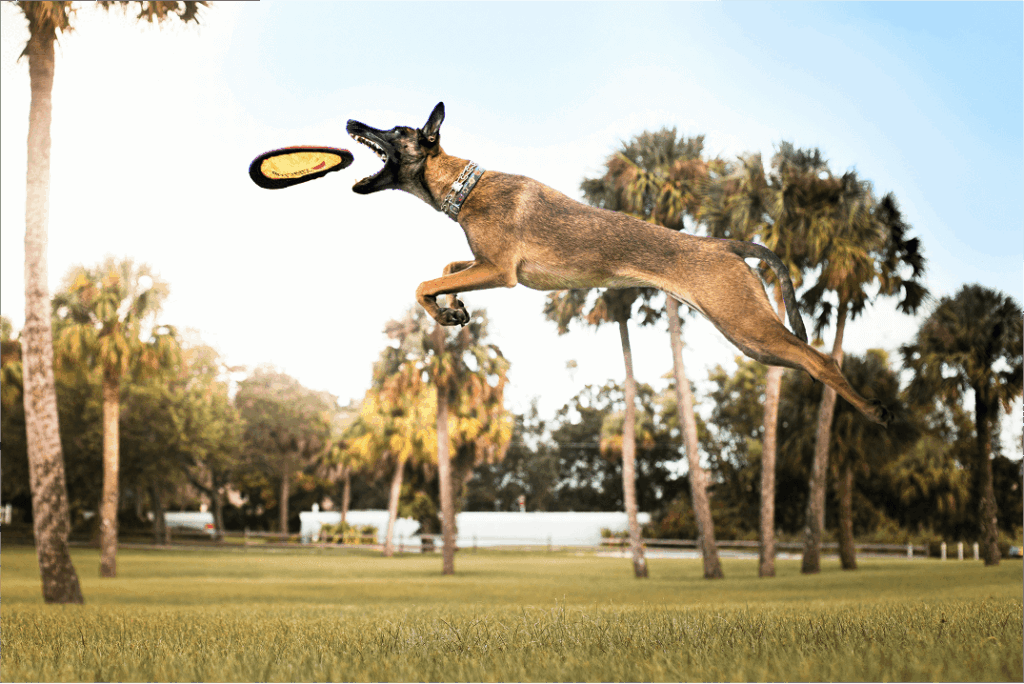The 5 Most Common Belgian Malinois Health Concerns
The Belgian Malinois is a hardworking, energetic breed, known for its loyalty and intelligence. They excel in roles such as service dogs, police dogs, and search and rescue, thanks to their strong work ethic. This breed is also an excellent companion for active families and individuals who enjoy hiking, running, or outdoor activities.
However, like all breeds, the Belgian Malinois has its own set of health concerns. Being aware of these health risks will help you keep your dog healthy and provide the best care possible.
1. Progressive Retinal Atrophy (PRA)
Progressive Retinal Atrophy or PRA in dogs is caused by the progressive degeneration of rod and cone photoreceptor cells. This can eventually lead to blindness in dogs and is usually a hereditary condition.
Symptoms to watch for:
- Difficulty seeing in low-light conditions
- Disorientation, especially in unfamiliar places
- Bumping into objects
While this condition is not painful, there is no effective treatment. Your veterinarian will help you modify your dog’s lifestyle in order to cope with the associated symptoms. Regular vet visits are essential – learn more about how often puppies need to see the vet to establish good healthcare habits early.

2. Cataracts
Unfortunately, the Belgian Malinois is prone to more than one eye issue. Canine cataracts occur when a dog’s lens clouds progressively, leading to a loss of vision. Cataracts are largely hereditary, which speaks to the importance of sourcing your puppy from a reputable breeder.
Symptoms to watch for:
- Cloudy eyes
- Difficulty seeing or navigating
- Hesitation to move around in new environments
In some cases, cataracts can be corrected with surgical intervention. If cataracts are identified early, surgery can often prevent complete vision loss. In other cases, dogs with cataracts are usually able to adapt to their vision loss without too much hassle.
3. Hypothyroidism
Hypothyroidism is caused by an underactive thyroid gland, which plays a crucial role in regulating metabolism.
Symptoms to watch for:
- Weight gain despite a normal diet
- Lethargy or lack of energy
- Dry skin, hair loss, and brittle coat
Hypothyroidism is identified through blood testing, and is usually not life threatening if managed properly. If diagnosed with hypothyroidism, your pooch will need to take a hormone replacement medication for the rest of his life. Understanding how much to feed your dog is also important when managing metabolic conditions like hypothyroidism.
4. Hip Dysplasia
Large, tall breeds like the Belgian Malinois are more prone to developing the relatively common condition of canine hip dysplasia. Hip dysplasia occurs when a dog’s hip socket does not properly align with the hip joint. The two parts scrape against each other rather than sliding into place, causing your canine intense pain. This condition is also common in other large breeds like Great Pyrenees and Bernese Mountain Dogs.
Symptoms to watch for:
- Difficulty walking or limping
- Stiffness or reluctance to move
- Lameness or dragging of the hind legs
This genetic condition is somewhat unavoidable, but luckily, it is manageable. Your veterinarian can provide your pup with pain medication, supplements, and recommend lifestyle changes to help deal with the associated symptoms. Depending on the severity of your dog’s condition, your veterinarian may also recommend surgery, stem cells, or physical therapy for your Belgian Malinois.
Veterinary medicine is exploring new ways to support dogs with joint disease, including regenerative approaches like stem cell therapy. In studies of osteoarthritis, stem cells have been investigated for their potential to ease inflammation, protect joint structures, and improve mobility. Since hip dysplasia often progresses to arthritis, this research is especially relevant, and many veterinarians are already anticipating regenerative options as part of future care.
You can read more about veterinarians’ perspectives on regenerative therapies in our study.
Be a Pet Health Hero
Help advance a new era of veterinary care by participating in a Gallant clinical trial.
5. Hemangiosarcoma
This devastating disease is one of the least understood amongst the veterinarian community. Hemangiosarcoma is characterized by a tumor of cells that line the blood vessels. While this condition can be passed down from one generation to another, there isn’t full consensus on the source of this condition.
Symptoms to watch for:
- Weakness or lethargy
- Swelling or bloating in the abdomen
- Pale gums or difficulty breathing
Unfortunately, there is no known cure for the life-threatening condition. Surgical removal of the affected organ is often the only option for treatment. If surgery is not possible, chemotherapy and palliative care may help manage symptoms. The prognosis is generally poor, and many cases are diagnosed too late.
Just like any other breed, the Belgian Malinois has his own set of health concerns that are important to understand as a responsible pet parent. With this expanded understanding, you’re sure to make an amazing pooch parent to these hardworking hounds. Enjoy welcoming one of these loyal, loving pups into your family!
For new pet owners, consider checking out our new puppy checklist to ensure you’re prepared for your new family member.


